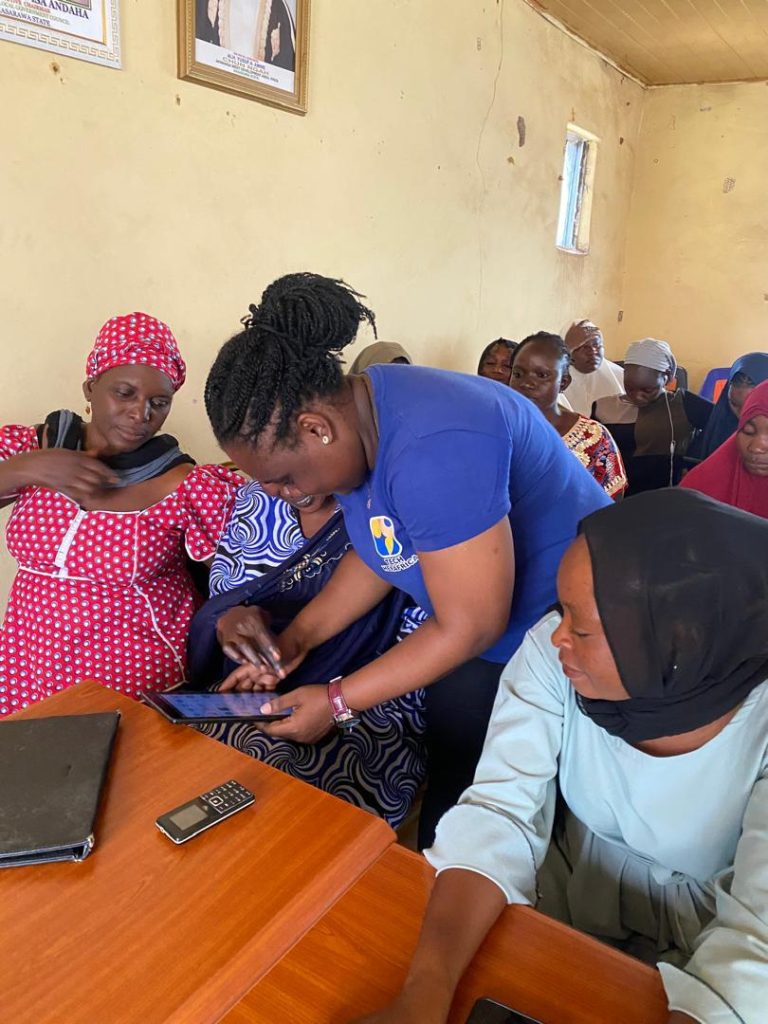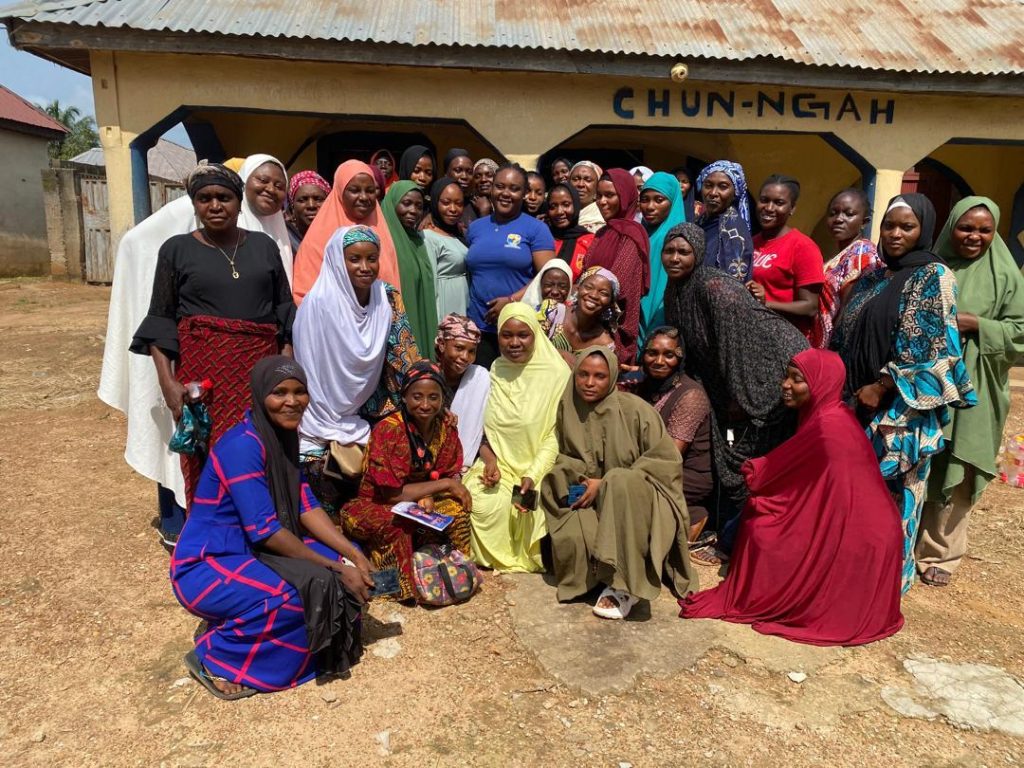Equipping Rural Business Women with Digital and Entrepreneurial Skills for Business Growth in Nasarawa State
1.0 Project Overview
On Saturday, August 17, 2024, a transformative digital and financial literacy campaign was launched in Nassarawa State, targeting rural business women in Nasarawa State, including farmers and traders. As part of the Chat for Women’s Livelihood Accelerator program, this initiative leveraged partnerships with turn.io with support from the Bill & Melinda Gates Foundation to create a WhatsApp Chat Service that facilitates learning digital and entrepreneurship skills and access to new markets.


1.1 Training Focus
The campaign delivered comprehensive training, equipping women with essential skills. Topics covered include:
- Introduction to Technology
- Benefits of the Digital World
- Bookkeeping
- Using Smartphones Effectively
- Creating and Managing Email Accounts
- Utilizing Social Media for Business
- Online Safety
- Using Google Search
1.2 Training Delivery
The training was conducted through Tech Herfrica’s WhatsApp service, enabling the women to learn directly via mobile devices. This approach ensured accessibility and engagement, allowing participants to gain practical experience with digital tools crucial for business growth. The sessions included:
- Introduction to Technology: Participants explored basic digital concepts, understanding how technology can significantly enhance their businesses.
- Benefits of the Digital World: This module emphasized the potential of digital tools in expanding market reach and improving business operations.
- Bookkeeping: Women learned how to keep accurate financial records and manage their finances, which are critical skills for business growth.
- Using Smartphones Effectively: The training highlighted the versatile functions of smartphones and how they can be leveraged for business growth.
- Creating and Managing Email Accounts: Many participants successfully opened email accounts, learning how to use them for professional communication and accessing vital digital services.
- Social Media for Business: Women were trained in creating and managing Facebook groups, with many setting up these platforms to connect with customers and grow their businesses.
- Online Safety: The module covered essential practices for safeguarding personal and business information online.
- Google Search: Participants gained confidence in using Google to find information relevant to their business needs.
2.0 Project Outcomes
The training delivered impressive results:
- Increased Awareness: All 43 participants (100%) affirmed that they had gained valuable insights on leveraging digital tools for income generation.
- Enhanced Online Learning: The number of participants engaging in online learning increased significantly from 10 (23.25%) before the training to 43 after the training, reflecting a 330% increase.
- Improved Social Media Skills: Every participant (100%) reported enhanced understanding and confidence in using social media for business, particularly in managing Facebook groups, and using WhatsApp for businesses. They also learned how to use WhatsApp functionalities to engage with their customers.
- Email Proficiency: Initially, only 3 participants (6.9%) could open an email account. By the end of the program, all 43 had successfully learned how to create an account, with many of them opening email on the spot, ready to use their email for both communication and accessing services.
- Boosted Confidence in Google Search: There was a 50% increase in participants’ confidence in using Google for business-related, personal, and educational searches.
- Economic Empowerment: Post-training, 81.4% of participants expressed newfound confidence in using their phones to generate income online.
- Enhanced Entrepreneurial Skills: Participants affirmed that the training had significantly boosted their skills in digital literacy, financial management, and entrepreneurship, directly contributing to their entrepreneurial success.
3.0 Lessons Learned
- Targeting Women with Smartphone Access: Selecting women who already had access to smartphones but lacked the skills to use them effectively proved highly beneficial. These women were able to immediately apply their new knowledge, leading to quicker and more meaningful engagement.
- Community Leader Involvement: Collaborating with community leaders to identify and mobilize participants resulted in strong attendance. Out of the 50 women invited, 43 arrived on time, eager to learn. The involvement of educated community leaders also facilitated easier knowledge transfer, particularly since the courses were hosted on WhatsApp.
- Combining Online Training with In-Person Support: The decision to complement online training with the physical presence of educated community leaders, who Tech Herfrica had trained, and to gather the women in a conducive learning environment was more effective than allowing them to learn independently, as was done during the soft launch.
- Incentives for Participation: Providing data and transport stipends was a significant incentive, ensuring full participation and maintaining the women’s focus throughout the training as they knew they did not have to walk back home after the training.
4.0 Sustainability Strategy
To ensure the long-term impact of this program, we plan to:
- Adapting to Diverse Communities: Continue our current physically supported approach to online learning, regions, taking into account cultural, linguistic, and economic factors.
- Building Strategic Partnerships: Strengthen collaborations with local organizations to extend our reach and enhance the effectiveness of our programs.
- Empowering Local Champions: Continue to invest in training local facilitators to sustain the program’s delivery and adaptability within communities.
- Measuring Our Impact: Continuously monitor and evaluate the program’s success through robust data collection and analysis, ensuring ongoing improvement.
5.0 Conclusion
This training has equipped women entrepreneurs in Nassarawa State with the digital and financial literacy needed to thrive in the modern economy. With a sustainable approach, this initiative paves the way for continued business growth and economic independence for countless rural women.

